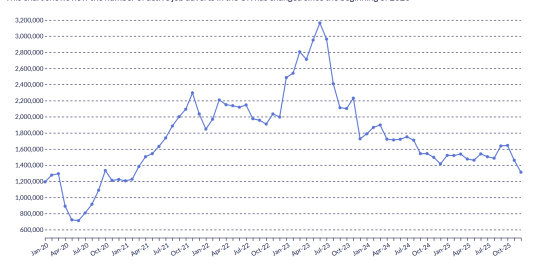A new report published by Executives Online, the fast track headhunting company, entitled: ‘Challenge of Change 2010’, reveals surprising dynamics amongst independent managers who manage change. Significantly the study revealed that the role of interim executives in delivering change had more than doubled to 33% from a base of just 15% in 2008.
The project shows remarkable consistency in responses surrounding the ‘drivers of change’ against the previous study conducted two years ago. The top four ‘primary drivers of change’ indicated increasing efficiency, cost reduction corporate restructure and the search for competitive advantage. However, when questioned whether change programmes were fuelled by ambition or fear almost 60% of respondents taking part in this year’s survey indicated ‘fear or defensive reasons’ as the driver of business change compared with just 45% of respondents in 2008. Interestingly female respondents were less likely than men to state fear and more likely to consider ambition, as the key driver of change.
There was a sharp increase in the number of planned change initiatives when compared with the 2008 survey. Drivers included cost reduction, business restructuring, business improvement and downsizing, in line with the economic temperature. Although the number of planned initiatives remained consistent the demands being placed on the change managers was felt to be more demanding by half the sample. However, in most cases, the respondents felt that the planned changes were manageable: this is consistent with the 2008 study.
Interestingly and rather damningly nearly 60% of the sample felt that companies manage change either ‘fairly poorly’ or ‘poorly’. The main reason for change going wrong was considered to be almost entirely staff related, revolving around poor leadership and the failure to empower staff. The two options that were regarded as the most effective measure to resource change were either via a dedicated internal team or by way of externally sourced interim change management personnel. Respondents from both client companies and interims themselves were in agreement that the most important skills a person responsible for delivering change needed to demonstrate included successful leadership, successful track record of similar change management programmes and excellent communication as well as personal charisma/persuasiveness.
Results of the online study conducted in September 2009 are drawn from a sample of over 1200 respondents, including a range of executives and interim managers who had been involved with change programmes in some capacity. Following on from similar studies which have been conducted annually since 2002 the most recent survey was designed to provide definitions and consensus, drivers of change; current planned business initiatives and it looks at the impact of recession on change. The study looks more specifically at how well companies manage change; when change goes wrong, causes underlying change programme failure, effectiveness and suitability of change management resources and finally the skills required in order to be an effective change manager.
Anne Beitel, Managing Director at Executives Online explains: “The role that interim managers can play in driving change programmes has become well established during the course of this recession. Interim managers bring rapidly deployable skills and expertise backed up with operational focus and track record. Change often causes fear because it suggests a trip into the unknown. Recession also causes fear because it presents a set of forces over which most businesses feel they have little control. The interim change manager is unique. They have no fear of change because to them it is both known and manageable. Furthermore, in most instances the change manager will have experienced several recessions and will be able to introduce a sense of calm and focus in an often turbulent, highly ch! arged business environment. This report provides a unique snapshot in time when, during the course of the 2009 recession, it may be argued that the interim change manager came of age. ”
The survey behind ‘Challenge of Change 2010’ draws on research conducted among over 4,000 executives globally. Executives Online operates in multiple international locations, with offices in theUK, The Netherlands, Belgium, Ireland, Italy, France, South Africa and Australia. Country and regional versions of ‘Challenge of Change’ are available free upon request at www.executivesonline.com






